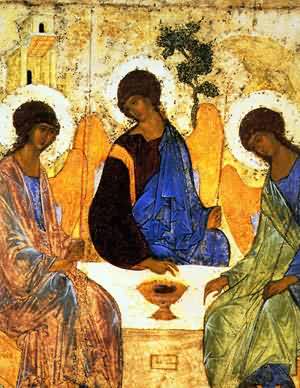
Jesus' question to Simon Peter--"Who do you say that I am?"--is the perennial question which Christians of all ages are called to address. There is no single or simple answer to this question. How could there be if, as Christian faith proclaims, Jesus Christ is the embodiment of the mystery of God in our world? This is why, from the very beginning of the Jesus movement and the church, there has been a pluralism of christologies. Moreover, every christology will be a partial christology based on the specific concerns and issues of a particular time, place and culture. The best christologies will show an ability to engage in a creative dialogue between the memory of Jesus that is recorded in the Gospels, the tradition of Jesus that is present in the Christian movement and the option for Jesus in the contemporary context.
The significant aspects of most contemporary christologies are the following: the retrieval of the genuine humanity and life-story of Jesus; a new awareness of the liberating power of Jesus for the poor and oppressed; and the attempt to situate faith in Jesus as savior-liberator within an emerging global consciousness. Although it is possible to critique some contemporary christologies for being over optimistic, and others for being too pessimistic, it is probably more important to recognise that every reflection on the reality and meaning of Jesus Christ needs the complementarity of other approaches. Contemporary christologies are voices within an ongoing conversation on the continued relevance of Jesus Christ for our world and the world of tomorrow.
As dangerous as it may be to predict the future, I think it would be a reasonably safe bet to suggest that christological diversity will increase rather than decrease. As Christianity moves into the third millennium, it will become increasingly a religion of the South (not only Latin American, but also Asian, African, Oceanian). This will inevitably lead to new reflections on Jesus the Christ from vastly different perspectives compared to those of Europe and the North. Our study has shown the not insignificant impact of Latin American liberation theologies on christological thinking. Perhaps their major impact will prove to be their insistence that all theologies and christologies are finally regional or particular understandings of Christ in a given context. As the dominant context of Christianity changes, so will reflections and images of the Christ mystery be transformed.
Panikkar, the European-Asian theologian, calls this a movement from 'christology' to 'christophany'. [ See Raimon Panikkar, A Christophany for our Times, in Theology Digest 39:1 (Spring 1992), 3-21 ] What does he mean by this? He thinks that European theology, for all its brilliance and evident insight, is too much a Western historical product. By this he means that it is caught up in the search for universal reason which is, he says, an abiding Western cultural concern. By contrast, Christian self-reflection in the third millennium will be less concerned with establishing an overaching christological theory and more energized by open conversation with the multiple ways in which the Christ-mystery can be understood with respect to various world cultures and traditions. Each 'christophany' will be a testimony to the manner in which the Christ-mystery is present to a particular people and culture without pretending or wanting to be a universal explanation of the way that Christ is present elsewhere.
This leads us to the timely challenge and creative adventure of developing a more authentic Australian christology that is both sensitive to the multicultural reality of our people as well as being founded on a deepening appreciation of the spiritual reality of our land. Consequently, an authentic Australian christology will need to grow out of the emerging conversation among European, Asian, Oceanian, Aboriginal and other Australians as they reflect together on the saving meaning and liberating power of Jesus Christ in the Australia of tomorrow. If, in the past, it has been the European voice that has been loudest, the time is upon us when the experiences and voices of other Australians need to be heard. In view of the forty to fifty thousand year experience of Australian Aboriginal people in 'the southern land of the Holy Spirit', Christianity needs to hear how the Christ-mystery, divine presence or saving reality was known, experienced and expressed here prior to European settlement. It also needs to hear how Aboriginal Christians have incarnated christian faith in an authentic way into their own spiritualities. In view of these kinds of questions we can surely say that the Australian christological conversation has only just begun.
|
|
|
|